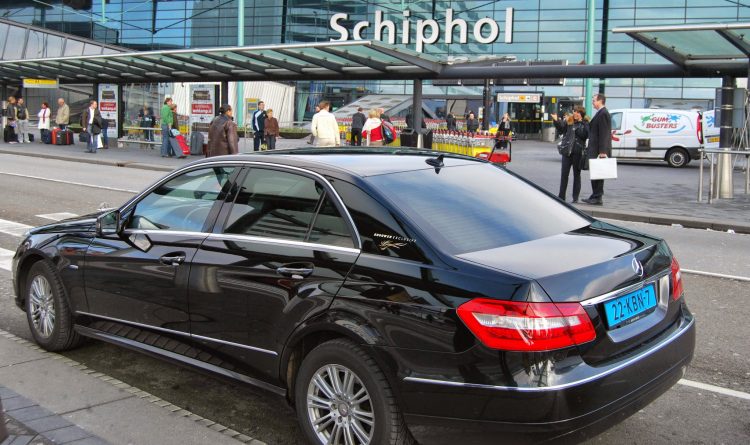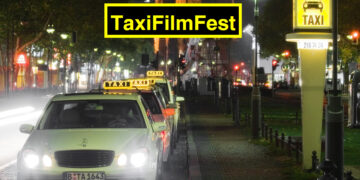Last week the first coordinated police action was held at Amsterdam Schiphol Airport to deal with the annoying behavior of taxi drivers trying to convince passengers to take their taxis. The enforcement action was a joint operation by the municipality of Haarlemmermeer, the Royal Military Police, and the Environment and Transport Inspectorate (ILT). These checks will be repeated on a regular basis.
In the meantime the airport allowed Uber to use part of the special taxi rank in front of the arrivals area. A dangerous mix with the official taxis and the other ‘official taxis’ touting for business.
The Municipality of Haarlemmermeer is looking for a structural approach to the taxi problem in consultation with the Ministry of Infrastructure and Environment, Schiphol Airport and the City of Amsterdam. Stepping up the enforcement is one side of the proposed solution. Research into other legal options to address the taxi problem, is another.
Theo Weterings, Mayor of Haarlemmermeer (Schiphol’s municipality): „It can not be that the Royal Military Police must be deployed structurally to tackle the behaviour of taxi drivers and those who hunt for potential customers. The police have other priorities, such as monitoring the safety of Schiphol because of the threat of terrorism and the importance of border controls. We are working hard on a structural solution, but this is a complex problem. “
The ability of the municipality to enforce action within the limits of the Transport Act against people offering taxi services is limited. In 2015 a court decision removed a ban on official taxis from other areas to tout for business at the airport more or less side by side with the official Schiphol Airport-taxis. Since deregulation any Dutch taxi can ply for hire at any rank or in any area in the Netherlands. While the situation for Schiphol is unique because the heart of the airport is owned by the airport and Schiphol has its own taxi concessions in this area. The last three years the number of taxi licenses in Amsterdam alone has grown from more than 2,500 to almost 4,000. The taxi market at Schiphol obviously has a strong draw on the Amsterdam drivers.
In that explosive mix, Uber started last week – right in front of the arrivals hall of the airport. Unlike official taxi companies (which have had to tender for the expensive taxi contract and follow the airport’s strict requirements at the airport – especially in the field of environmentally friendly transport) Uber quickly gets permission to pick up at the arrivals hall.
This approach by the airport, which until recently had an exemplary taxi and related transport policy and became an example for other airports, this ‘taxi problem‘ will not make things easier. In particular, the taxi operators – official Schiphol taxis and the newcomers – will not be pleased by the preferred position the ‘tech company’ has been given.
There have been problems at Schiphol for a few months, with touts, for official taxi drivers trying to win over customers to use their cabs instead of the official Schiphol ones. They usually get to the client well before they reach the official Schipholtaxi stand. Recently, the taxi problems at the airport were literally broadcast by singer Skin from Skunk Anansie who complained on Facebook about the touts (in ‘official’ taxi jackets) at the airport and airport security people (in similar jackets) are trying to pull arriving air travellers.
Both Schiphol Airport, the Municipality of Haarlemmermeer and the Transport Minister hurried to come up with a response to Skin’s very public complaint. A solution is expected before the end of the year.







